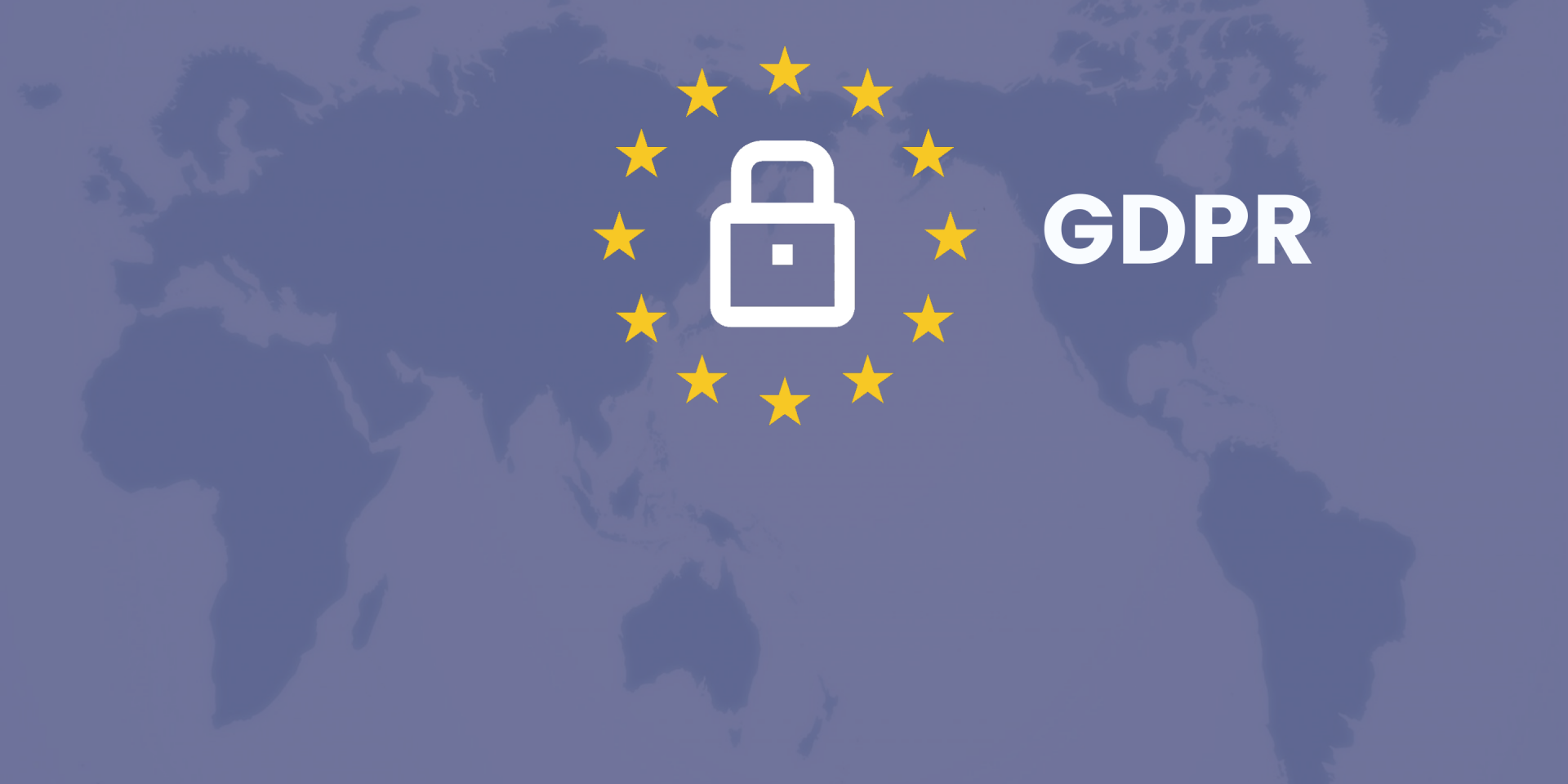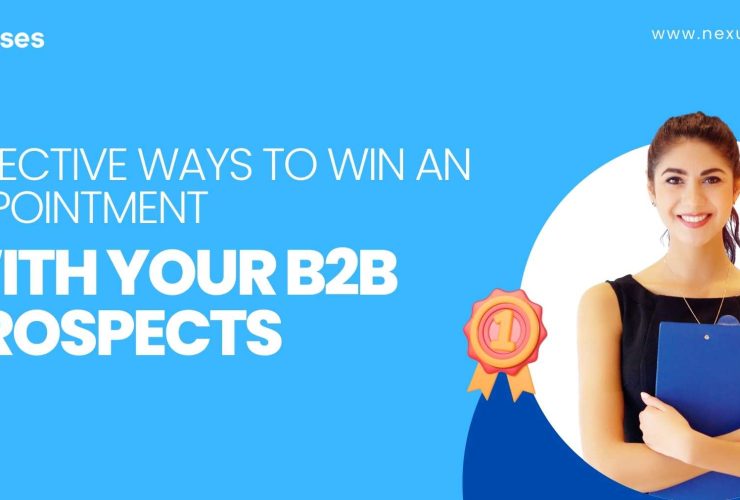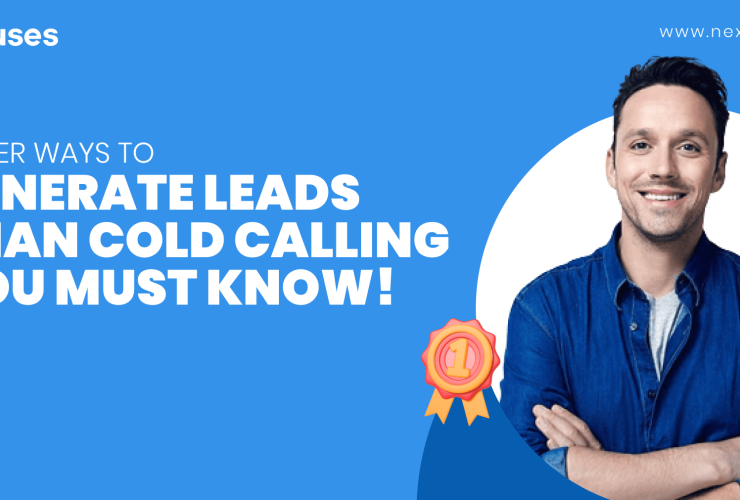How are you going to adopt your business processes to comply with GDPR? Can you still use cold outreach for B2B marketing? We will answer these and other questions in our GDPR Guide for B2B Marketing blog so keep reading for more information
If your mind is continuously hovering with such questions and more, then you are at the right place. GDPR or General Data Protection Regulation has left many businesses stumped into where they stand with compliance.
So, we did all the hard work for you. Here’s everything you need to know on the subject.
What is GDPR?

The European Union law is designed to protect the personal data of EU citizens and uphold their right to privacy. Enforced since May 2018, this legislation has particularly affected salespeople and strategists.
Most B2B sales and marketing professionals swear that personal data holds the key to getting in touch with the right people at the right time. Any business that has to rely on outbound sales to expand its market share is highly dependent on personal data sharing.GDPR Guide for B2B Marketing
Things you need to understand
Before we start on our guide, there are some concepts that need to be clear.
Personal Data: Any data that relates to an identifiable or identified individual can be classified as personal data.
Data Controller: They decide the means and purposes of processing individual data.
Data Processor: The entity who processes personal data on behalf of the controller.
GDPR vs. PECR
PECR or the Privacy and Electronic Communications Regulation bars businesses from using unsolicited direct marketing techniques, including cold calling and cold emails.
However, it must be clarified that both these regulations stand on their own and businesses must comply with them individually. This GDPR Guide for B2B Marketing centers GDPR so continuing..
Challenges regarding GDPR

The reason lawmakers in the EU introduced GDPR is because of the challenges consumers face while sharing their personal data with companies. Most of them feel that business enterprises seldom try hard enough to protect their data.
In fact, a consumer study conducted by TRUSTe/NCSA has concluded that 92% of consumers are concerned about their data security and privacy.
Another study by the Chartered Institute of Marketing also found out that 57% of consumers do not trust brands when it comes to their data. However, their paranoia is not misplaced.
When the business end of data privacy was looked into by Symantec in their State of Union Privacy report, 90% of businesses said that deleting consumer personal data is too hard. Also, around 60% of them do not even have systems in place to comply with the law.
What is GDPR’s impact on B2B data?
For B2B businesses also, GDPR compliance is absolutely essential if they are dealing with clients in the EU. Therefore, it is the duty of businesses to ensure that they handle the data with care.
However, this regulation affects sales teams the most. Without personal data, it becomes difficult for companies to find prospects.
Even on the marketing side of things, 41% of B2B marketers already agree that they do not understand the law very well and thereby do not know how to comply with it.
https://www.superoffice.com/globalassets/blog/2017/8/challenges-to-delete-customer-data.png
The impact of GDPR on marketing

While on the surface the idea of GDPR seems too extreme for small businesses, that is hardly the case.
Realistically, what B2B marketers need to worry about are the three key areas of data – data permission, data focus, and data access. Let’s find out more about them:
https://www.superoffice.com/globalassets/blog/2017/8/gdpr-marketing-data.png
Data Permission
According to GDPR best practices, your data permission should be asked for in a free, specific, informed, and unambiguous manner, which has to be reinforced with affirmative action.
Confused?
It basically means that your clients should personally give you permission to contact them. Therefore, under GDPR, your opt-in forms need to be more precise and choice-oriented, rather than manipulating the customer for permission.
However, things get a little tricky when it comes to referral programs.
People refer their friends to avail offers and promotions. After the referral, an email is sent to the referee’s email address – for GDPR compliance, this email should be a notification and not a promotion.
Also, you must ensure that you do not store their personal data without explicit authorization from them.
What if you are not GDPR compliant?

Not complying with GDPR can land you with a hefty fine. For companies that breach regulations, fines can go up to 4% of their annual worldwide turnover or 20 million dollars, whichever is higher.
Understanding Email Marketing Regulations: CASL vs CAN-SPAM vs GDPR

If you use email marketing as part of your sales process, then you need to know about these three regulations: CASL in Canada, CAN-SPAM in the US, and GDPR in the EU.
Many businesses who are already in compliance with CASL and CAN-SPAM often ask if they need to comply with GDPR. The answer is yes.
Here are some of the salient features of the CAN-SPAM act:
- Accurately represent your in the From, To, and Reply sections.
- Include an unsubscribe option
- Include a valid postal address
However, this act does not worry about where the information has been sourced and does not set precedent for taking prior permission, rather allows an opt-out.
CASL or Canada Anti-Spam Law also includes all of the above CAN-SPAM provisions, but focuses on an opt-in instead of an opt-out.
But among the three, GDPR is by far the most stringent. Affecting all businesses that offer services in the European Union, it has more defined laws when it comes to the storage of personal data and enforces it with heftier fines.
Thank you for reading our GDPR Guide for B2B Marketing also read: Top 7 Tips to Generate High Quality Sales Leads!
Does GDPR allow the use of B2B data?
GDPR had initially made many businesses worry about the use of personal data for cold approaches in the future. To flourish, every business needs to approach more people and navigate prospects.
Taking out sourced B2B data of the equation would have been a major blow.
However, GDPR does not ban the use of personal data for cold emails or calls. It just regulates them to protect individual data privacy.
To make sure that you are following the best practices for your EU clients, here are a couple of questions you should answer.
Who are you trying to contact?

In case you are trying to contact someone outside of the EU, GDPR compliance is not required. Abiding by CASL and CAN-SPAM is enough.
However, if you are looking to acquire and service EU clients, then you have to ensure compliance; even if you are not a registered business within the Union.
When it comes to selling, there are no major issues with GDPR unless you are selling to sole traders or partnerships.
Why are sole traders and partnerships held in a different standard?
In the EU, some partnerships and all sole traders are considered as individuals. This means that you need their explicit consent before trying to contact them.
For people who work in businesses, you can comply with GDPR by using their publicly published professional information or use their company email id.
How is your B2B data sourced?

Now that we have established that B2B data can be used under GDPR, let’s focus on how the data is sourced.
If you are collecting the data and storing it yourself, then you need to make sure that the process of collection and storage is compliant with GDPR. Make sure you review the tools being used and ensure data security.
For 3rd party data sourcing, you need to make sure that your vendor is 100% GDPR compliant.
What are the impact of GDPR on your outbound sales processes?

We have already explained the use of personal data under GDPR. However, you can still market relevant products and services to individuals within a business, as long as you have a clear opt-out.
So, before you send your first cold email, you are not violating the regulation. In Article 6 of the legislation, it is mentioned that you need a lawful basis to process personal data.
These include:
- Consent: You have clear consent from an individual, allowing you to process their personal data to meet a specific purpose.
- Contract: You are processing their data for or as part of a mutually agreed upon contract.
- Legal obligation: You have to process their data as a legal obligation, outside the purview of a contract.
- Vital interests: You need to process the data to save someone’s life.
- Public task: You are doing it as a part of public interest or in official capacity.
- Legitimate interest: Processing is part of your or 3rd party legitimate interests, unless their personal data rights override your legitimate interest.
To clear these concepts further:
If you have consent to use someone’s personal data, your use falls under Consent.
It is obvious that most sales teams are unlikely to have any claims on an individual’s personal data under legal obligation, contract, vital interests, or public task.
However, the legitimate interest clause does grant you basis for cold outreach lawfully.
How to establish Legitimate Interest in B2B sales?

Legitimate interest means that you are processing an individual’s data because they are likely to have a legitimate interest in why you are contacting them.
When it comes to B2B sales, this should not be much of a problem, since businesses already know what kind of people buy from them.
For example, if you get most of your businesses from marketing managers of companies, then getting in touch with them without prior consent will fall under the legitimate interest clause.
However, your opt-out still has to be very clear.
In essence, GDPR does not hamper B2B outbound sales. It just makes sure you are getting in touch with people who might be interested, and not just carpet-bombing people with cold emails.
For more information- Is Cold emailing legal? Quick Legal guide for Email Outreach.
Few other best practices for B2B data usage by outbound sales teams
Nevertheless, there are a few other best practices to adhere to.
Documentation and Accountability
The Article 30 makes you accountable for your B2B data usage.
This includes logging the entire usage, control, access, sharing, and security of data.
Data Cleaning

Make sure you frequently qualify that the people you are email marketing too still want your emails.
We have tried to cover most of the fundamentals in our GDPR Guide for B2B Marketing. However, there is more to learn and find out – which is why you need to get in touch with us. Book a one-on-one consultation today and find out how you can market to EU clients without breaking GDPR regulations.





